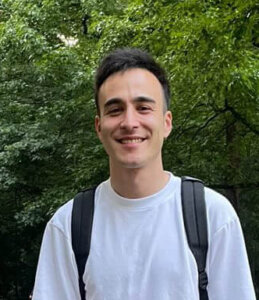Vivian Silver, 74-year-old peace activist, grandmother, and friend, confirmed dead
Friends and family of Vivian Silver, who has spent much of her life advocating for Israeli-Palestinian peace, lost touch with her when Hamas attacked her home
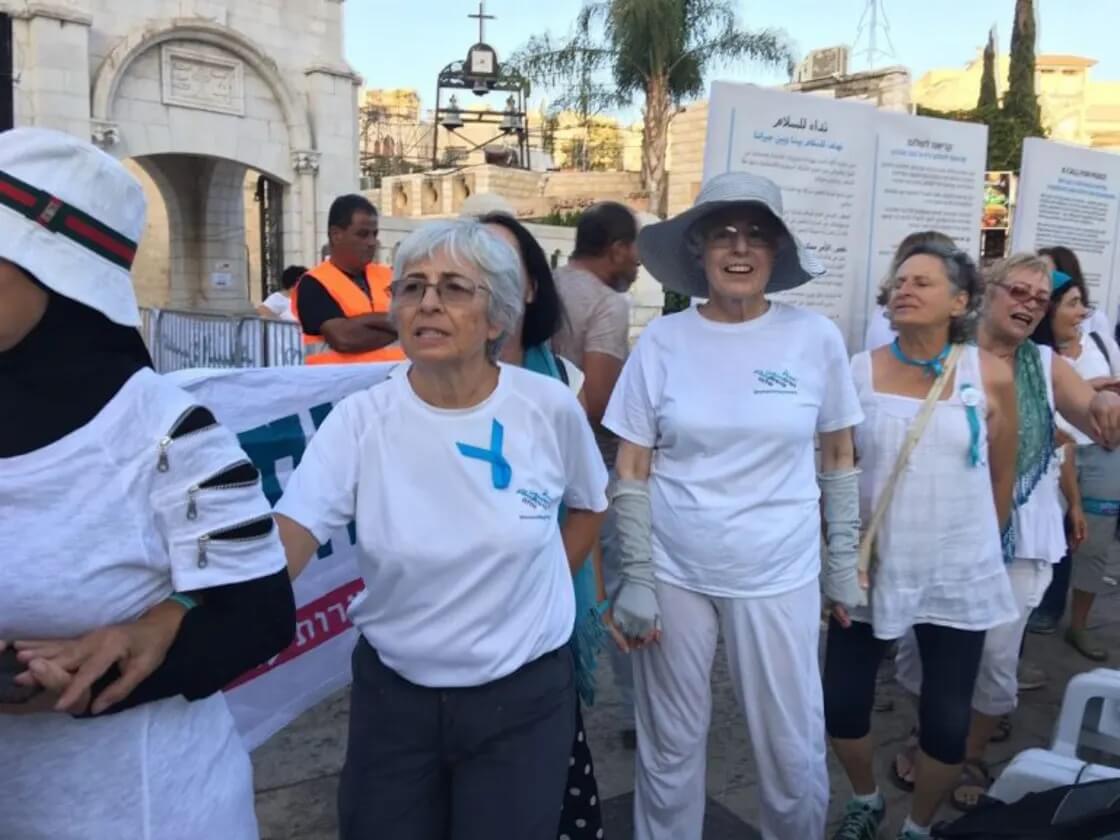
Graphic by Angelie Zaslavsky
Editor’s note: Vivian Silver was confirmed dead on Nov. 13, after authorities identified her remains at her home through DNA testing. Silver, 74, was previously assumed to be among the more than 200 people held hostage in Gaza following the Oct. 7 attack. She is now believed to have been killed by Hamas during the Oct. 7 massacre.
Most Saturday mornings, Canadian-Israeli peace activist Vivian Silver rides her bike through trails just miles away from the Gaza border. Sometimes, looking across the Negev, she mulls over the vast inequities between Israel and Gaza.
On a ride with her friend Lisa Lepson, vice president of development at the Forward, Silver said, “We’ve created this Eden here. Over there, it’s the opposite.”
Silver has dedicated many of her 74 years to bridging that gap.
But last Saturday, Hamas operatives crossed over that same border into Silver’s home in nearby Kibbutz Be’eri, murdering over a hundred people and kidnapping many others. Silver’s friends and family haven’t heard from her since.
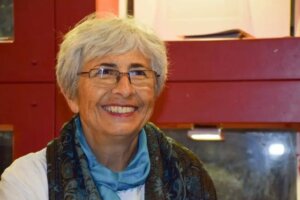
Just a few days earlier on Oct. 4, Silver had marched in Jerusalem with thousands of Palestinian and Israeli women in “The Mother’s Call,” an event aimed at rallying female activists for creating a peaceful future for Israel and Palestine.
On Saturday morning, friends and family reached out to Silver soon after they heard about rocket fire from Gaza into Israel.
From about 6:30 to 11 a.m., she exchanged messages with concerned loved ones as gunfire and shouting sounded from outside. Around 11, she was hiding in the closet of a safe room in the kibbutz.
That’s when, her son Chen Zeigen, a postdoctoral researcher at the University of Connecticut, said, “she texted us that she was hearing someone enter, or trying to enter.” She joked that next time, she would make sure to keep a big knife in the closet.
“Then she texted, ‘I think they’ve gone,’” he recalled. “And that’s the last we heard of her.”
“We’re assuming she’s kidnapped because we haven’t received any communications otherwise,” he said.
A lifelong activist
“Silver is a small woman with unflagging energy and a smile that lights up the room,” a group of Silver’s family members, friends and colleagues wrote in a biography they have been circulating since she went missing. She was raised in Winnipeg, Canada, and by the early 1970s was a leader in the North American Jewish Students Network, an umbrella organization of independent student groups advocating for funding and support for Jewish culture and education. As the administrator of the network’s Jewish Student Press Service, she helped publish articles on Israeli-Palestinian relations.
“She was devoted even then to a view that Israeli Jews and Palestinians needed to find a way to live together,” said her friend Rabbi Gerry Serotta, who edited JSPS while Silver was administrator.
In the same decade, she moved to Israel and helped found Kibbutz Gezer as a part of Habonim Dror, a Zionist labor youth movement. In 1990, she moved to Kibbutz Be’eri, where she raised her two sons, Chen and Yonaton, with her late husband, Lewis Zeigen.
In 1999, Silver became co-executive director of the Arab-Jewish Center for Equality, Empowerment, and Cooperation, part of the Negev Institute for Strategies of Peace and Economic Development, an organization that focuses on education, economic development, and leadership development for the Bedouin community of the Negev and Arab citizens throughout Israel.
Shifra Bronznick, who has been a close friend of Silver since 1973, when both organized the first National Conference of Jewish Women, said that Silver spent a lot of time thinking about “the differences between taking on this work as a Jew, or as a Palestinian, or as a Bedouin,” and how to respectfully collaborate.
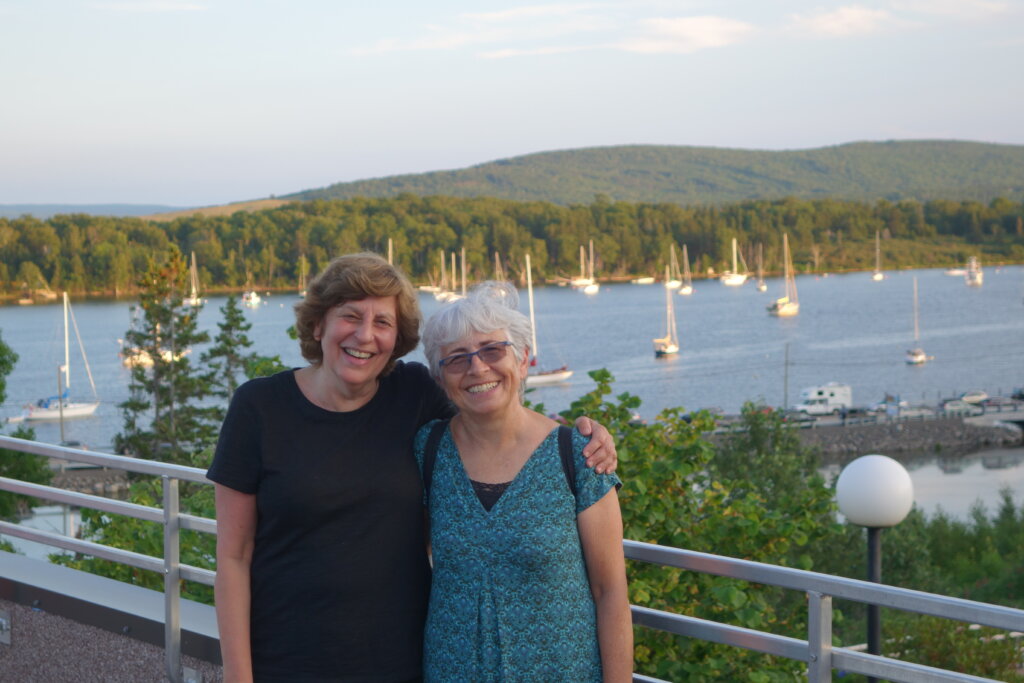
In 2014, Silver stepped down from leadership at the center and co-founded Women Wage Peace, an organization that mobilizes Israeli women of all religious and ethnic backgrounds toward finding a peaceful solution to the Israeli-Palestinian conflict. Behind her work with this group is a belief that if women are placed front and center in diplomacy, “they will be able to build the kinds of bridges that have not been built,” Bronznick said.
Before Israel blockaded Gaza’s eastern border in 2007, Silver worked in-person with people who lived in Gaza — for example, she started a group called Creating Peace that forms business collaborations between Palestinian, Arab-Israeli and Jewish-Israeli artisans.
Since the border closed, Silver has found other ways to maintain contact with friends in Gaza, often through WhatsApp and phone calls. She drives to Gaza several times a week and brings Palestinians needing medical care to hospitals in Tel Aviv or Jerusalem as a volunteer for an organization called Road to Recovery.
To Maggie Bar-Tura, a close friend of Silver’s who has known her since Silver’s first days on Kibbutz Gezer, Silver’s work and relationships with people in Gaza make her current situation cruelly ironic. “Vivian Silver, who has spent her entire adult life working to bring people together and to find a solution — a peaceful solution — to the Palestinian-Israeli conflict,” Bar-Tura said, “now may be in some tunnel or in some room being held at gunpoint by Hamas.”
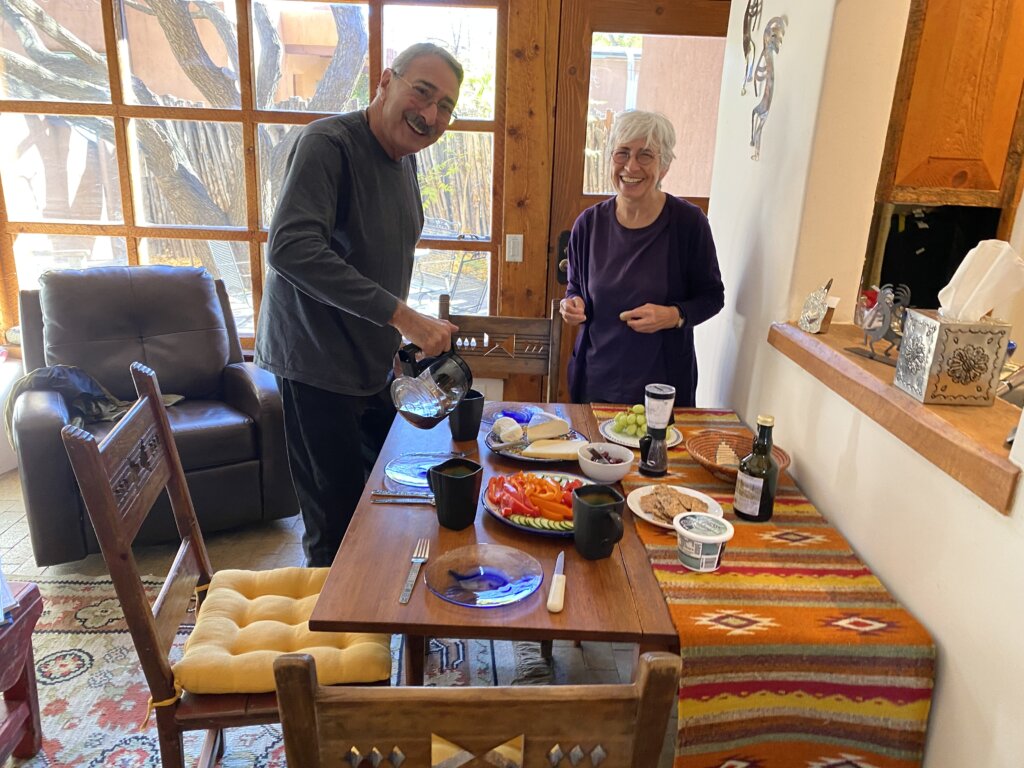
But Bar-Tura said she reminds herself, “If there’s anybody who ends up being a hostage in captivity and can organize a meeting, and negotiations between Hamas and their captives, that would be Vivian. She’s indefatigable.”
A loving grandmother and friend
Silver’s friends emphasized that she is more than a professional activist: “She loves people,” said Bar-Tura. She calls Silver someone who really cares “about each and every person in her life.”
Silver has four grandchildren, and Silver’s son described her as a loving grandmother. Every week, Silver video chats with her 3-year-old grandson, Lenny, who lives in Connecticut, and sings “Old McDonald Had a Farm” with him, holding up toy animals to her video camera for Lenny to name. The plan was for her to visit the Connecticut branch of her family for Thanksgiving.
Silver also makes “amazing” cakes for her grandchildren, Bar-Tura said. One of them recently requested a dragon-shaped birthday cake, and she pulled it off successfully.
Several times a week, Silver and Bar-Tura chat on the phone about everything from the peace movement to their grandchildren. “Ever since Saturday morning, I keep thinking, ‘I need to call Vivian and ask her what she thinks,’” Bar-Tura said. “And I realized that I can’t do that. And it’s like: punched in the gut, once more.”
‘Bring my friend home’
Silver’s friends and family members have been meeting daily to coordinate efforts to bring Silver home. They started a Facebook page, Missing Vivian Silver, to solicit information about her whereabouts, and have reached out to the Red Cross and the Canadian government — including a member of Parliament who represents Silver’s hometown of Winnipeg — to attempt to locate her and advocate for her release.
Bar-Tura said she’s frustrated that, while the United States and several European countries have demanded protection for citizens being held hostage, “Canada, for some reason, has not made those steps.”
“Bring my friend home,” said Bronznick. “We need people in leadership who have the capacity to bring my friend and all the other missing people home to the people who love them.”
Correction: A previous version of this story mischaracterized the North American Jewish Students Network. They were an umbrella organization of independent Jewish student groups, not a leftist movement.



